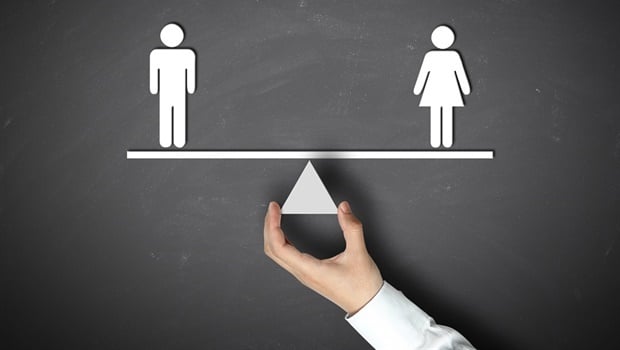
The Covid-19 coronavirus has caused a lot of concern and panic globally as the number of infections continue to rise.
Social distancing have become the buzzwords, with citizens across the world being advised to stay away from social gatherings and public engagements.
Several countries have closed schools and universities to reduce the risk of infections.
Others have implemented national lockdowns in an attempt to flatten the curve of infections.
Since the virus spreads through physical interaction, reducing mass public contact makes sense in case the next interaction could be with someone infected.
But who bears the brunt of social distancing? What is the gendered impact of the interventions to tackle Covid-19?
Burden of care
Several countries across Africa, Zimbabwe, Uganda and South Africa, among them, have declared the virus as national disasters and taken a number of measures to try and curb it.
These include prohibiting social gatherings such as weddings and funerals, banning travellers from high risk countries and closing schools – for a month in Uganda and until after Easter in South Africa – for example.
This sounds well and good, but when schools close children will need to be looked after at home and on whom does this responsibility fall?
The reality is that this will be the responsibility of their mothers and other female caregivers such as domestic workers who must ensure that they adhere to the necessary precautionary measures.
It is mostly women who will have to adjust their schedules to accommodate their care giving roles while the men are less affected by such developments.
In the event the children are infected, it is their mothers and custodians who will be at the forefront of caring for them.
They will be at risk of being the next victims due to their care giving roles. This burden of care and responsibility is also bound to impact on their own work and self-care.
As Maria Holtsberg, humanitarian and disaster risk advisor at UN Women Asia and Pacific says: “Crisis always exacerbates gender inequality.”
It has also been emphasised that to prevent contracting and/or spreading the virus, there is a need for people to wash their hands often and keep them clean.
This also sounds good until we consider places where there is no running water. Who carries the burden of fetching water in many households?
This responsibility often falls in the hands of women and girls. The rising demand for clean water means an increase burden for women and girls to collect the water.
This means that they will often not be able to distance themselves socially and physically from others, as they are bound to meet their peers at boreholes and water collection points, thus increasing their risk of infection.
Healthcare provision
It is common cause that women make up the majority of healthcare workers around the world. According to the World Health Organisation estimates, 70% of the workforce that provides health and social care services are women.
Thus, as the virus has been spreading globally, it is women who are at the forefront of providing care and social services to affected people.
With such global statistics, this means that even in Africa women health and social care workers will be more involved and affected in tackling the virus.
This includes placing their own lives at risk, and meeting the tedious demands of care work which also impacts on their ability to spend time with their loved ones.
Gender-based violence
Violence against women and girls is a global scourge with statistics showing that 35% of women worldwide have experienced either physical and/or sexual intimate partner violence or non-partner sexual violence in their lifetime.
At least 38% of murders of women are committed by a male intimate partner.
Gender-based violence happens both in public and private spaces, with the latter often presumed to be safe havens.
While social distancing is meant to reduce the amount of public movement and interaction of people, it will certainly increase time spent in private spaces where women and girls are abused, away from the public eye. While social distancing is meant to protect and reduce the risks of citizens getting infected, it may result in the risks of women and girls being abused and violated.
It is therefore critical that as all of us take the necessary precautions to prevent the spread of Covid-19, we are cognisant of the gendered impact of the responsibilities involved in such initiatives.
As governments call for physical and social distancing, may there be reciprocal measures to ensure that women’s lives are not further burdened. May there be adequate support for women healthcare workers and social services providers.
May the police be on the alert to address the potential increase in domestic violence cases and render women and girls the relevant support they need should they fall victim.
Campaigns should not only address the need to tackle Covid-19, but also promote messages against gender-based violence during this crisis.
With schools closed, may all guardians and custodians of minors – be it women or men – share the responsibility of caring for their children. May the burden of care for the sick not be placed on women only.
As we endeavour to keep our hands and our environments clean, may men and boys also be involved in chores such as collecting water to ensure that women and girls are not over-burdened with such responsibilities and exposed to infection.
Let’s not be blind to the gendered impact of the coronavirus and we all have a responsibility to mitigate this!
- Mpiwa Mangwiro is campaigns and advocacy specialist for MenEngage Africa, an alliance of civil society organisations and activists working to promote gender transformation in Africa.




 Publications
Publications
 Partners
Partners








